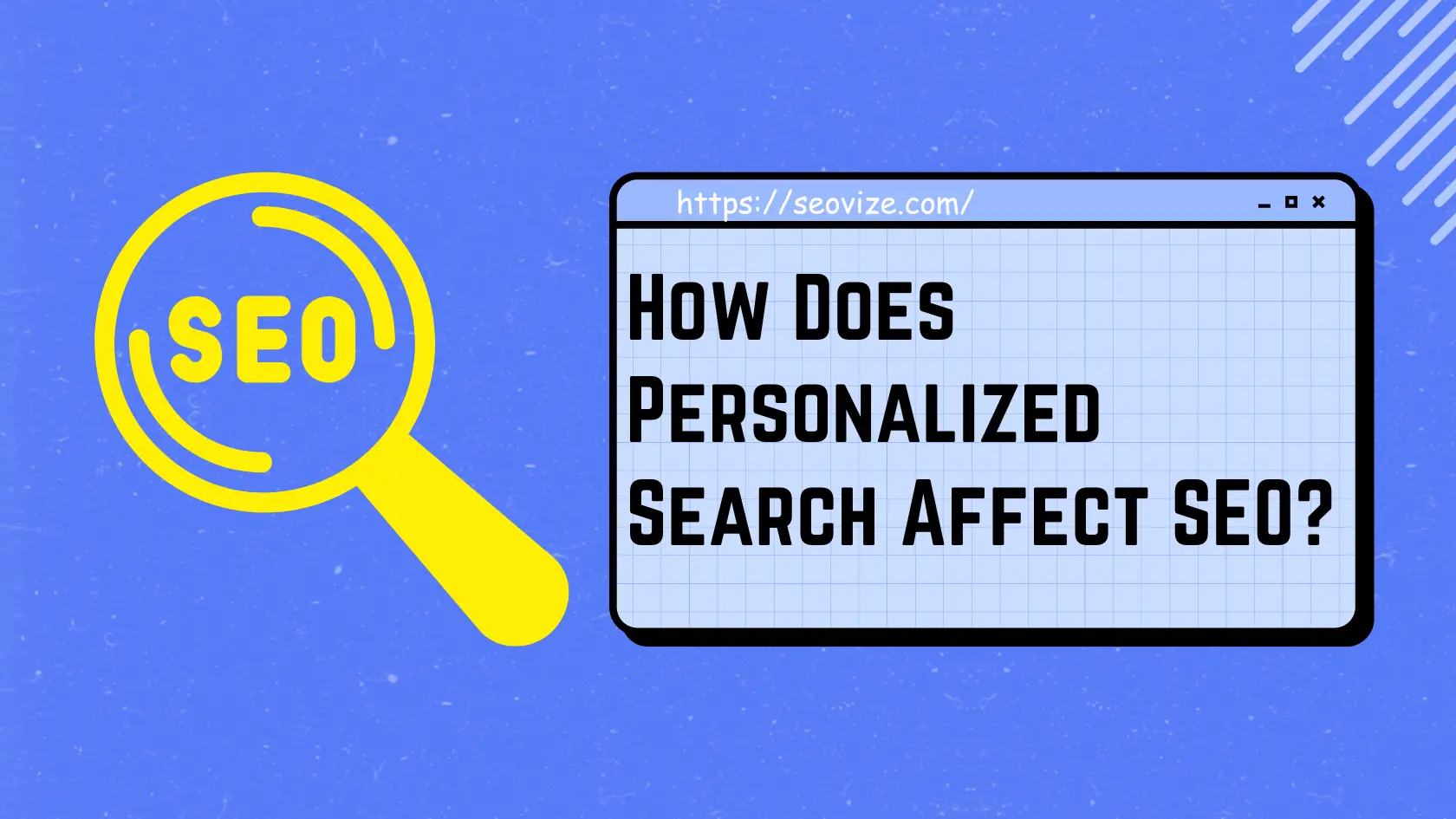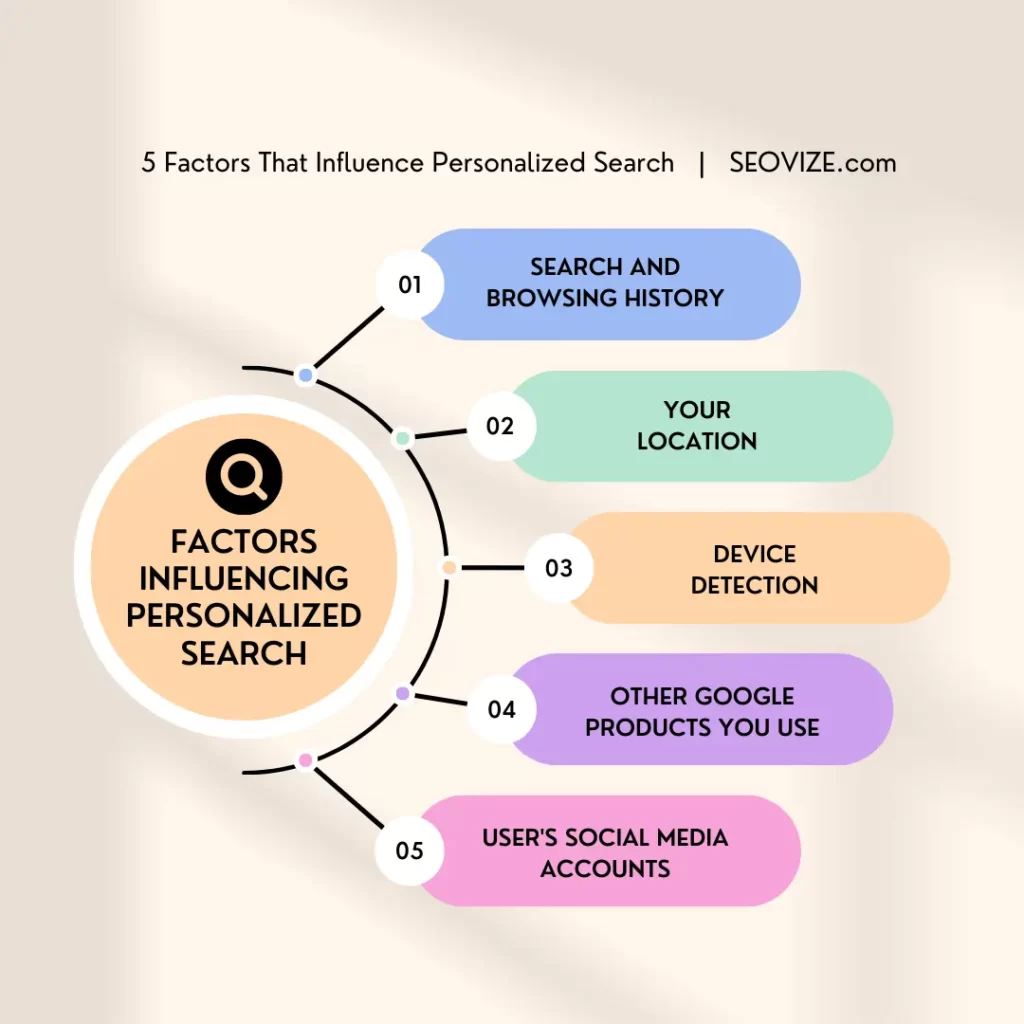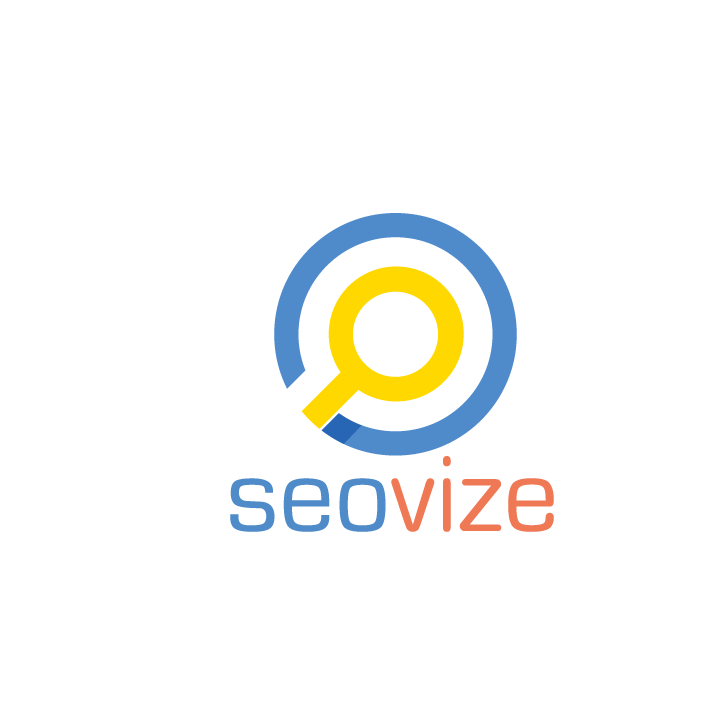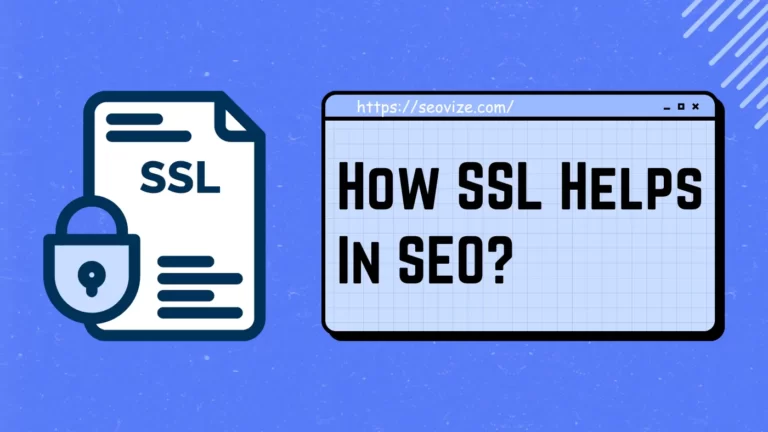
Search engine optimization (SEO) has changed a lot in recent years, and one of the most significant factors is personalized search.
Google and other search engines continually refine their algorithms to improve the quality of results for users, and this includes taking into account individual user preferences and search histories.
In this blog post, we’ll take a closer look at what personalized search is, how it affects SEO, and what website owners and SEO specialists can do to optimize their sites in this context.
What Does Personalized Search Means?
Have you ever noticed that when you search for something online, the results you get are different from the results someone else gets when they search on their device?
That’s because search engines use your search history, location, and other data to provide results that are more relevant to you.
For example, if you frequently search for Italian restaurants in your city, search engines will likely show you Italian restaurants in your location as a top result.
Personalized search means that search engines customize their results based on the user’s previous search history and other factors such as location, the device used, and social media behavior.
This makes it more likely that users will see relevant and useful information on the first page of their search results.
However, personalized search also means that the same keyword may generate different results for different users, which can have implications for SEO.
Google’s Personalized Search Explained
Google’s personalized search algorithm utilizes data from a user’s search history to improve their results.
For example, if you often look for information related to sports cars, Google may prioritize results about sports cars over other topics when you enter a new query.
According to Instapage, 74% of customers feel frustrated when website content is not personalized. (Source: instapage.com)
Google is also working on new more personalized search engine “Project Magi”.
How Does Personalized Search Affect SEO?
Targeting Specific Keywords
Personalization makes it more challenging to target specific keywords. Keyword rankings vary based on user preferences and search history, and there’s less visibility into what keywords are driving traffic as a result.
To address this, it’s crucial to focus more on high-quality content that answers specific user queries and satisfies their intent.
That’s why it’s essential to create content that’s user-centric and valuable based on intention rather than just stuffing in keywords.
Brand’s Presence
The 2nd impact of personalized search on SEO is Brands’ advantage via the user’s interactions with them.
Websites that users return to frequently or have engaged with on social media and other platforms are more likely to appear higher in their search results.
This means that building a following and presence on social media can have a positive effect on SEO.
Building a personal brand is important because it helps you stand out in a crowded market. It allows you to differentiate yourself and create a unique value proposition that resonates with your target audience.
Neil Patel, founder of Kissmetrics and Crazy Egg
Moreover, businesses that engage with their audiences, and have active social media profiles can have an increased chance of appearing in personalized search results.
Affect Local SEO
Personalized search results let search engines understand the location of the user, so they prioritize closer businesses for the most relevant results.
This factor provides a significant opportunity for local SEO, where geotargeting can be utilized.
Therefore, business owners can optimize local SEO in such a way that they could display results relevantly and appear more prominently in the users’ personalized search results within their respective vicinity.
Factors That Influence Personalized Search Algorithm

Search And Browsing History
One of the most significant factors that influence personalized search results is a user’s search and browsing history. Google uses this information to understand the user’s interests and preferences and delivers search results tailored to their needs.
Location
Another factor that affects personalized search is the user’s location. Google uses the user’s IP address and location data to deliver results that are relevant to their geographic location. For example, if someone is searching for “pizza”, Google may show results for pizza places in their local area.
Social Media
Social media also plays a role in personalized search. Google uses information from a user’s social media profiles, including their likes, shares, and interactions, to deliver more personalized results.
Device Detection
Device detection can also affect personalized search results. Google can detect the type of device a user is using and may deliver different results based on that information.
Blocked Access
If a user blocks certain websites or types of content, Google will take that into account when delivering personalized search results. For example, if someone has blocked news websites, they are less likely to see news stories in their search results.
Other Google Products You Use
Google offers a range of products and services, including Gmail, Google Docs, and Google Drive. When a user interacts with these products, Google uses that information to deliver search results that are more relevant to their needs.
Personalization And Its Importance in Ecommerce
Personalization is especially important for eCommerce sites. By creating tailored search results and recommendations, businesses can provide more relevant options to their customers.
Personalized search can help drive site traffic, improve user experience, and increase engagement. If an eCommerce site can provide users with products that match their preferences, their experience on the site is more likely to be positive, increasing the likelihood of a sale.
Importance of Device Type for Personalization
The device type is also important when it comes to personalized search. Mobile searches account for more than 50% of all internet searches, and it’s important to optimize for mobile users [Source: Algolia].
Websites that are not mobile-friendly or easy to use on smaller screens will likely see a drop in traffic and rankings. Therefore, you should have a responsive design and prioritize optimizing your site for mobile users.
Understanding the Importance of Location Targeting
Location targeting is also an important factor in personalized search. Search engines track a user’s IP address to determine their location and provide results that are relevant to their area.
This can be especially beneficial for businesses with physical locations, as search engines can provide local search results to users based on their location. For example, if I’m searching for “coffee shops near me,” search engines will display coffee shops in my proximity.
Strategies for Optimizing for Personalized Search
As more users rely on personalized search results, it has become crucial for businesses to optimize their online presence accordingly.
1. Understand your Audience
To optimize your online presence for personalized search, you should have a deep understanding of your target audience’s search patterns, preferences, and behavior.
This entails conducting thorough market research and analyzing your website’s analytics. You can also leverage keyword research tools to gain insights into the keywords and phrases that your target audience uses when conducting searches.
Understanding your audience enables you to create content that resonates with their search queries and increase your chances of ranking higher in personalized search results.
2. Consistent Branding Across Multiple Channels
To rank higher in personalized search results, your branding must be consistent across all online channels.
This specifically involves using the same brand name, address, and phone number across different directories, social media platforms, and online listings.
Having consistent branding increases your online presence’s visibility and hence grants you higher rankings in local search results.
3. Content Optimization
To rank higher in personalized search results, it is crucial to create high-quality, relevant, and engaging content.
This includes optimizing your content with the right keywords to ensure that search engines understand the content’s context for ranking purposes.
Keyword research tools, Google Trends, and Google Adwords are popular tools that can help you conduct keyword research.
4. Use Social Signals
The use of social media is a critical component of modern marketing strategies, and it also plays a role in personalized search results.
Social signals such as likes, shares, and comments influence how search engines rank pages in personalized search results.
Therefore, it is imperative to maintain an active social media presence and encourage users to share your content to leverage social signals.
5. Responsive Design
Ranking higher in personalized search results requires your website to have a responsive design. Responsive design ensures that your website is mobile-friendly, loads quickly on all devices, and offers an excellent user experience.
Google ranks websites based on the user experience they provide, and hence having a responsive design is critical to ranking higher in personalized search results.
Conclusion
Personalized search is an excellent example of how Google strives to improve user experience. However, this shift has had consequences for SEO and website owners.
In conclusion, website owners and marketers should aim to create valuable content that answers specific user queries and satisfies their intention, which is key when targeting multiple audiences through personalized search.
Building an excellent reputation and following on social media platforms can provide the best chance of appearing prominently in personalized search results.
Becoming a recognized and trusted brand and focusing more on local SEO are some critical ways that business owners can take advantage of personalized search optimization opportunities.

